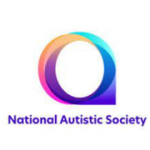There are many reasons autistic people can feel anxious.
For example, dealing with social or sensory challenges, changes and unpredictability, or difficulty understanding and regulating emotions.
Research shows that compared to non-autistic people, autistic people are 4 times more likely to experience anxiety.
Physical symptoms of anxiety are different for everyone but can include:
- a fast heart rate
- feeling short of breath, shallow breathing, breath holding
- feeling easily irritated
- feeling distressed
- shaking or trembling
- sweating
- feeling sick
These are some behaviours you might see when an autistic person is very anxious
- needing reassurance, asking lots of questions (for example: about what might happen)
- meltdowns, emotional outbursts
- Shutdowns –withdrawing from interactions; being unable to speak
- avoiding the trigger – such as refusing to go to school, refusing to eat certain foods
- Ruminating or overthinking – thinking too much or thinking unrealistically – for example, about the worst thing that could happen
- needing routine and sameness- which to others can seem obsessive
- repetitive physical behaviour – such as rocking, flapping, fiddling with fingers
- self-harm
- running away
This video was not produced by Leicestershire Partnership NHS Trust and may contain adverts.
_____________________________________________________________________
If you or someone else is at immediate risk of serious harm or danger, for any reason, including their mental health, you must contact the emergency services
You can either phone 999 or get the person at risk to an accident and emergency (A&E) department at a hospital
- Not all hospitals have A&E, so check first if you are not sure
- If you can’t do this by yourself, ask someone to help you
___________________________________________________________________
If it’s not an immediate emergency but you have urgent mental health concerns, you can call NHS 111 and press option 2
- You will be put through to a qualified call handler, who will be able to give you the advice and support you need.
- This service is totally free and confidential and operates 24 hours a day, seven days a week
- It is for all ages – so you can call this number if you are a parent or carer and need urgent mental health advice and support for a child or young person.
- Alternatively, you can visit https://111.nhs.uk/and follow the on screen instructions. This service is also staffed by the same qualified call handlers. It operates 24 hours a day, seven days a week and is free and confidential
Please note however that the NHS 111 service does not deal with emergencies.
Where there is an immediate, serious and life-threatening emergency, you must call 999 or attend A and E
_____________________________________________________________________
For a directory of other support services for emergency, urgent and non-urgent emotional health support, please click the following link:





